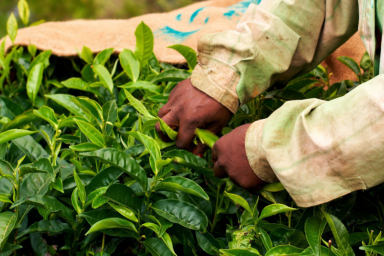Tips for your sustainability journey
In the wake of COP26 and as climate awareness gathers pace, the UK is full of small businesses wondering where to start and what they can do to have a positive impact.
They may not have been established with eco-values at their core, but they are increasingly looking for ways to make a difference.
We gathered a group of business leaders in exactly that position to understand their learnings so far.
1. Start small and make little changes
For brands at the very start of their journey, it can feel overwhelming to try and do everything.
“When I started my business I wasn’t conscious of trying to make eco-friendly choices but now I am very aware,” explains Jenny Louise Baker, founder of Grizzli Bear which makes personalised zip pouches.
“I know there’s a lot of ways to go to make changes but I started with buying organic cotton materials and now I’m moving slowly towards more eco-friendly bits here and there.”
2. Look at your stockroom
Most product-based businesses need to hold stock they’ve made before selling it to customers.
But Eddie Olaleye, co-founder of, Hey…is that me?, a clothing brand celebrating African heritage, wanted to avoid sending truck loads of t-shirts to landfill.
“We started using Shopify as a means of print-on-demand so we could avoid having t-shirts sitting around already made that perhaps wouldn’t sell.”
3. Spreading the word internally
With many companies working remotely these days, it can be difficult to keep tabs on energy usage and good green practices.
Simply raising awareness is a good start.
“Using a Slack channel to reward and shout out people who have made good sustainable changes can be a quick win,” says Neelima Bansal, COO at fintech company, Lerex.
“We may also use newsletters because I know I personally would love to learn more and I imagine my colleagues do too.”
4. Use recycled materials and buy second hand
Recycled materials are now widely available for many business needs and if you need specific equipment for your job, why not source it second hand rather than buying new products that will cost you and the planet that little bit more.
“We use recycled card for our business cards which is a relatively easy switch and whenever we need to buy more cameras or lenses we try to find them second hand,” explains Martin McLellan, founder and photographer, McLellan Photography.
5. Day course
If you’re keen to understand more about what you can do, there are courses that can help bring you up to speed with some of the more complex elements.
“The supplier I get my pouches from is a long-term supporter of carbon literacy projects and they offer a one day course on becoming carbon literate,” says Baker. “’I’m going to look into doing one.”
6. Stay true to your brand
If sustainability is important to you, don’t be afraid to make that part of your brand story and stay true to it in the face of any challenges or customer queries.
“If we get complaints about the reusable packaging or if people just want something quick and cheap, we have to just say, ‘well maybe this isn’t the place for you,’” says Baker.
“No one wants to lose a customer but you can’t undermine your brand,” adds Olaleye.
7. Prepare for slightly increased costs
Buying sustainable raw materials can be pricey.
Sometimes there’s no escaping this fact and there’s no way around it.
But look at it as a necessary business cost.
“I’ve certainly noticed that sustainable products tend to cost more but I think long-term, it’s obviously going to help everyone,” says McLellan. “It’s a short term impact.”
8. Don’t be surprised by hurdles you didn’t expect
It’s not always the most obvious things that you will find trickiest.
For Olaleye, areas such as packaging were relatively easy to resolve and find eco-alternatives.
Printing onto organic t-shirts was harder. “If a garment hasn’t been pre-treated in a certain way it doesn’t take the ink quite as well,” he explains.
“And if you’re screen printing, plastisol is brighter and lasts longer. We spent a long time finding companies that were happy to do the job the way we wanted and meet our sustainability targets.”
Tags related to content:
Disclaimer: We make reasonable efforts to keep the content of this article up to date, but we do not guarantee or warrant (implied or otherwise) that it is current, accurate or complete. This article is intended for general information purposes only and does not constitute advice of any kind, including legal, financial, tax, or other professional advice. You should always seek professional or specialist advice or support before doing anything on the basis of the content of this article.
Neither British Business Bank plc nor any of its subsidiaries are liable for any loss or damage (foreseeable or not) that may come from relying on this article, whether as result of our negligence, breach of contract or otherwise. “Loss” includes (but is not limited to) any direct, indirect, or consequential loss, loss of income, revenue, benefits, profits, opportunity, anticipated savings, or data. We do not exclude liability for any liability which cannot be excluded or limited under English law.
Green Decoder
Featuring a glossary of sustainable terms curated in partnership with the Nottingham Business School, Nottingham Trent University, our green decoder is helping smaller businesses decipher the terminology surrounding decarbonisation.



